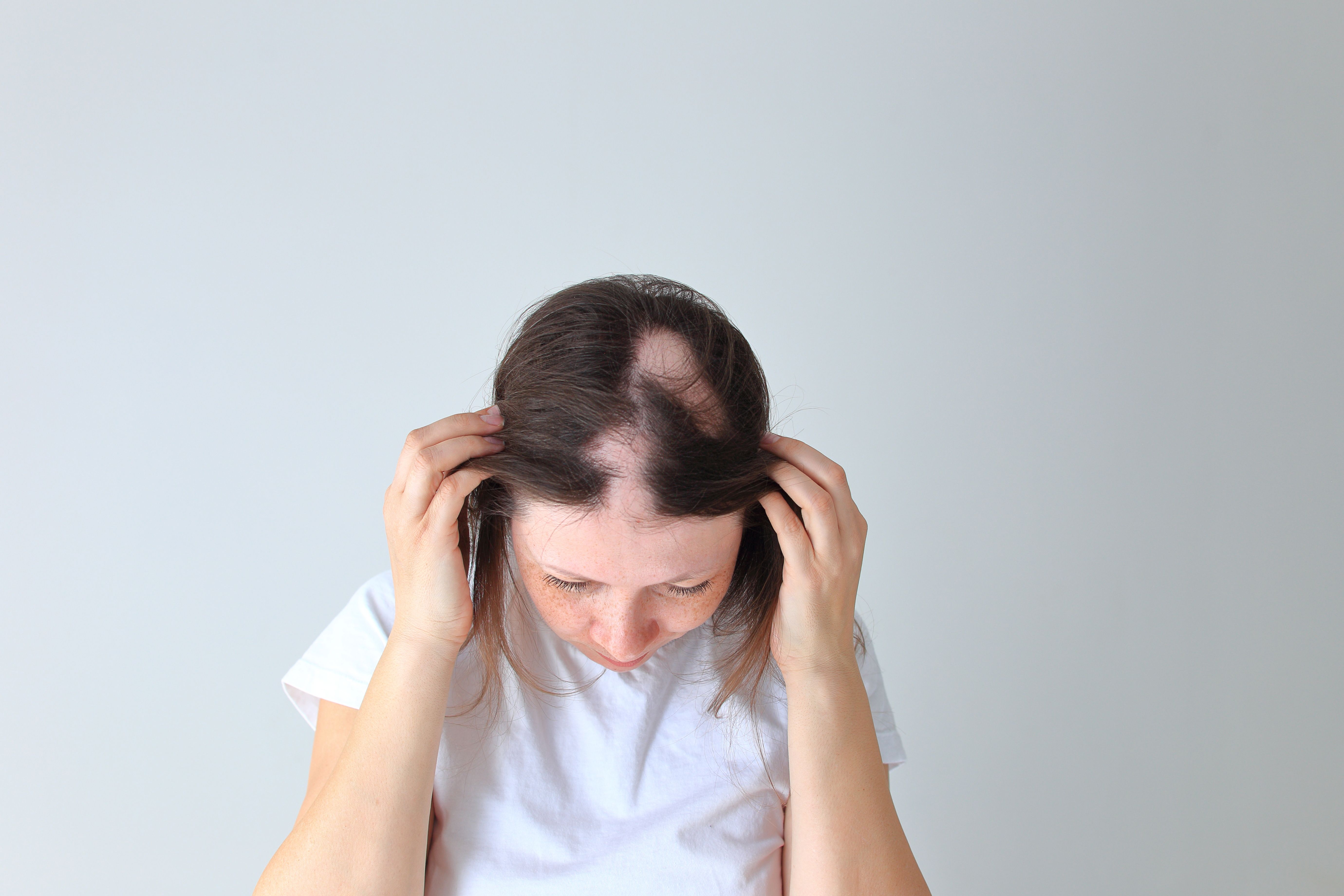- Acne
- Actinic Keratosis
- Aesthetics
- Alopecia
- Atopic Dermatitis
- Buy-and-Bill
- COVID-19
- Case-Based Roundtable
- Chronic Hand Eczema
- Chronic Spontaneous Urticaria
- Drug Watch
- Eczema
- General Dermatology
- Hidradenitis Suppurativa
- Melasma
- NP and PA
- Pediatric Dermatology
- Pigmentary Disorders
- Practice Management
- Precision Medicine and Biologics
- Prurigo Nodularis
- Psoriasis
- Psoriatic Arthritis
- Rare Disease
- Rosacea
- Skin Cancer
- Vitiligo
- Wound Care
Article
Anxiety and Depression Prevalent in Patients With Alopecia
Author(s):
Following a meta-data analysis, researchers say the prevalence of these psychological conditions in patients with alopecia areata is greater than that of the standard population.
Researchers say that patients with alopecia areata (AA) may be at a heightened risk and overall higher prevalence of certain psychological conditions and systems, including anxiety and depression.
Nadya Kolobova/Adobe Stock

In order to effectively determine the distinct prevalence of both depressive and anxiety disorders as well as symptoms of anxiety and depression in patients with AA, researchers conducted a systemic review and meta-analysis of previous data and research.1
The results, published in January by JAMA Dermatology, sought to reaffirm previous findings. According to the study authors, prior studies of a similar nature were exclusionary in nature due to a lack of distinguishing between disorders and symptoms. Study authors said they recognized that they could exist separately from one another.
Researchers identified 37 relevant articles on depression (n=29) and anxiety (n=26). All articles were identified using the Meta-Data Analysis of Observational Studies in Epidemiology guidelines and contained data on depression, anxiety, and symptom prevalence. Data for the review and meta-analysis came from the Cochrane Library, Embase, PsycINFO, PubMed, and ScienceDirect.
At the conclusion of review, researchers found that patients with AA have a 9% prevalence of depression disorders and an odds ratio of 1.38. They also found a 13% prevalence of anxiety disorders and an odds ratio of 1.51-1.69.
In terms of symptoms of depression and anxiety, researchers found that patients with AA experienced symptoms of depression at a prevalence of 37% and symptoms of anxiety at 34%.
By the conclusion of the review and meta-analysis, they had found that greater than one third of patients with AA had psychiatric warning signs that could develop into psychiatric disorders. Meanwhile, 7 to 17% of patients with AA had depression or anxiety requiring psychiatric care, including medication.
It has long been understood in the dermatology space that certain dermatologic conditions may impact patients emotionally and psychosocially.2
The majority of patients in a 2020 study3 reported burdens due to their symptoms and treatment that impacted their relationships, productivity, financial health, and emotional well-being. They reported having made major life decisions centered around their AA, and cited that coping with their condition is a significant daily challenge.3
References
- Lauron S, Plasse C, Vaysset M, et al. Prevalence and odds of depressive and anxiety disorders and symptoms in children and adults with alopecia areata. JAMA Dermatology. 2023. doi:10.1001/jamadermatol.2022.6085
- Basavaraj KH, Navya MA, Rashmi R. Relevance of psychiatry in dermatology: Present concepts. Indian Journal of Psychiatry. 2010;52(3):270. doi:10.4103/0019-5545.70992
- Mesinkovska N, King B, Mirmirani P, Ko J, Cassella J. Burden of Illness in Alopecia Areata: A Cross-Sectional Online Survey Study. J Investig Dermatol Symp Proc. 2020;20(1):S62-S68. doi:10.1016/j.jisp.2020.05.007
Newsletter
Like what you’re reading? Subscribe to Dermatology Times for weekly updates on therapies, innovations, and real-world practice tips.














